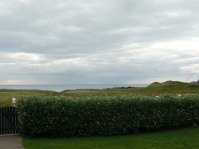Throughout society, media, and academia, it seems that ignorance is no longer a void to be filled, but a virtue to be lauded. Ignorance is certainly not a ‘problem’, not something to be ashamed of, but is either an opportunity to learn or a signal that you need to seek external expertise. However, when ignorance is seen as something not just good in itself, but almost a sign of superiority over those who do have knowledge or expertise, then surely this is a sign of a world in decadence.
Although it is something of which I’ve been aware for a long time, two things prompt to think again about this: a mailing list discussion about science in schools and a recent paper review.
The CPHC mailing list discussion was prompted by a report by the BBC on a recent EU survey on attitudes to science amongst 15-25 year olds. The survey found that around 1/2 of Irish and British respondents felt they “lacked the skills to pursue a career in science” compared with only 10% in several eastern European countries. The discussion was prompted not so much by the result itself but by the official government response that the UK science community needed to do more “to understand what excites and enthuses young people and will switch them on to a science future.” While no-one disagrees with the sentiment, regarding it as ‘the problem’ disregards the fact that those countries where scientific and mathematical education is not a problem are precisely those where the educational systems are more traditional, less focused on motivation and fun!
I have blogged before about my concerns regarding basic numeracy, but that was about ‘honest ignorance’, people who should know not knowing. However, there is a common attitude to technical subjects that makes it a matter of pride for otherwise educated people to say “I could never do maths” or “I was never good at science”, in a way that would be incongruous if it were said about reading or writing (although as we shall see below technologists do do precisely that), and often with the implication that to have been otherwise would have been somehow ‘nerdy’ and made them less well-balanced people.
Sadly this cult of ignorance extends also to academia.
 A colleague of mine recently had reviews back on a paper. One reviewer criticised the use of the term ‘capitalisation’ (which was in context referring to ‘social capital’) as to the reviewer word meant making letters upper case. The reviewer suggested that this might be a word in the author’s native language.
A colleague of mine recently had reviews back on a paper. One reviewer criticised the use of the term ‘capitalisation’ (which was in context referring to ‘social capital’) as to the reviewer word meant making letters upper case. The reviewer suggested that this might be a word in the author’s native language.
At a time when the recapitalisation of banks is a major global issue, this surely feels like culpable ignorance. Obviously the word was being used in a technical sense, but the reviewer was suggesting it was not standard English. Of course, ‘capital’ in the financial sense dates back certainly 300 years, the verb ‘capitalise’ is part of everyday speech “let’s capitalise on our success”, and my 30 year old Oxford English Dictionary includes the following:
Capitalize 1850. …. 2. The project of capitalizing incomes 1856. Hence Capitalization.
Now I should emphasise it is not the ignorance of the reviewer I object to; I know I am ignorant of many things and ready to admit it. The problem is that the reviewer feels confident enough in that ignorance to criticise the author for the use of the word … apparently without either (a) consulting a dictionary, or (b) while filling out the online review form bothering to Google it!
This reminded me of a review of a paper I once received that criticised my statistical language, suggesting I should use the proper statistical term ‘significance’ rather than the informal language ‘confidence’. Now many people do not really understand the difference between significance testing (evidence of whether things are different) and confidence intervals (evidence of how different or how similar they are) – and so rarely use the latter, even though confidence intervals are a more powerful statistical tool. However the problem here is not so much the ignorance of the reviewer (albeit that a basic awareness of statistical vocabulary would seem reasonable in a discipline with a substantial experimental side), but the fact that the reviewer felt confident enough in his/her ignorance to criticise without either consulting an elementary statistical text book or Googling “statistics confidence”.
So, let’s be proud of our skills and our knowledge, humble in accepting the limits of what we know, and confident enough in ourselves, so that we do not need to denegrate others for doing what we cannot. Then ignorance becomes a spring board to learn more and a launching point for collaboration







 A colleague of mine recently had reviews back on a paper. One reviewer criticised the use of the term ‘capitalisation’ (which was in context referring to ‘social capital’) as to the reviewer word meant making letters upper case. The reviewer suggested that this might be a word in the author’s native language.
A colleague of mine recently had reviews back on a paper. One reviewer criticised the use of the term ‘capitalisation’ (which was in context referring to ‘social capital’) as to the reviewer word meant making letters upper case. The reviewer suggested that this might be a word in the author’s native language.

